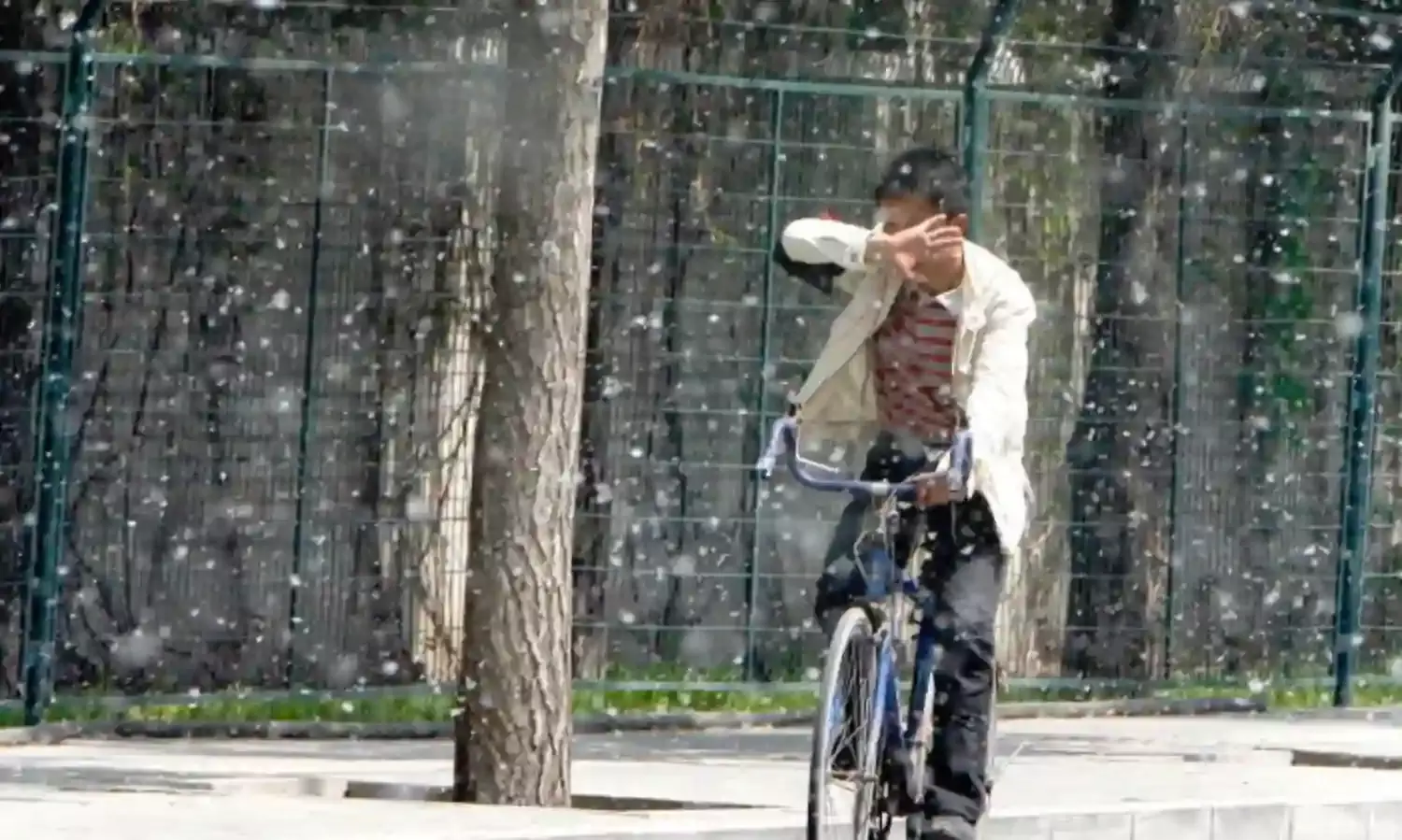Ill in Kashmir, Blame it on the Notorious Russian Poplars
Season of sickness

SRINAGAR: Come summer and Kashmir braces up for a snow of different kind which is blamed for all the seasonal illnesses like coughs, fevers and colds: the fluffy cotton shed by the ‘notorious’ Russian female poplar trees.
During the season which starts in April and peaks in June when the tree sheds its seeds layered under fluffy cotton balls which swirl in the skies like snow, hospitals across Kashmir record increase in footfall of patients who complain of respiratory illness.
“There is a sudden spike in illness such as cold, cough and fever which is linked by people to the fluffy cotton balls of Russian poplars. But this is only partly true,” Dr Aadil Ashraf, who works at Srinagar’s SMHS hospital, said.
Dr Aadil said the pollen and not the cotton shed by Russian poplars acts as an allergen, “Even then a study carried out by GMC Srinagar concluded that the pollen shed by Russian poplars caused allergy in just 20 percent of the patients examined in the study,” he said.
However, the study hasn’t been able to dispel the myth that only Russian poplars, a US species planted in the valley under a World Bank funded program, are responsible for seasonal illnesses.
According to doctors, pollen from grass is likely to cause allergic reactions in 73.5 percent people, pollen from pine in 62.7 percent and pollen from the widely found Chinar trees in 60 percent of the population.
Some years ago, following an epidemic of seasonal illnesses, the Jammu & Kashmir High Court had ordered the government to chop all Russian poplars in the Valley.
“It is a common knowledge that pollen seed of Poplars is adversely affecting health of general public, mostly of elderly people and children. The pollen seed of these trees has given rise to chest diseases in Kashmir, which can become life threatening for them,” the court observed.
Citing Article 21, the court ruled: “The right to life can become meaningful, only if a person is healthy.”
However, despite the court directives, the fluffy cotton balls continue to infest the land, water bodies and even the air of Kashmir.
“The biggest cause for respiratory diseases in Kashmir is dust which affect 92.7 percent of the population, yet people see the enemy in Russian poplars alone. It is better to take precautions like covering mouth while in open to reduce the risk of infection,” Dr Shafqat Islam, a leading ENT specialist, said.



